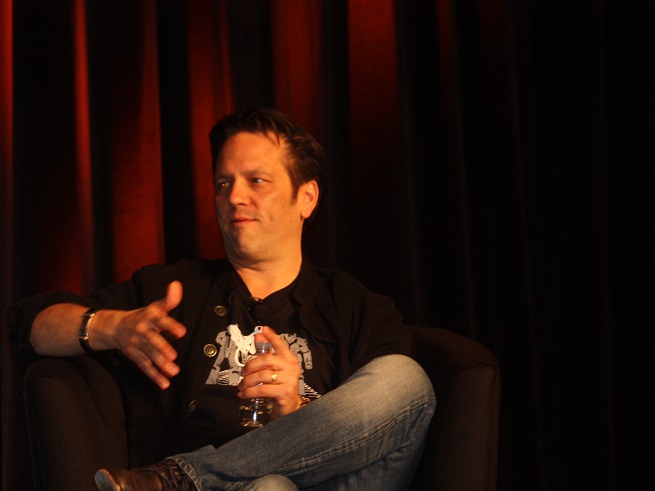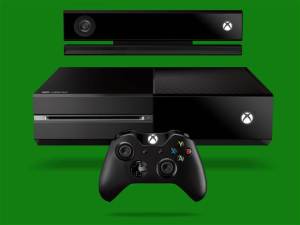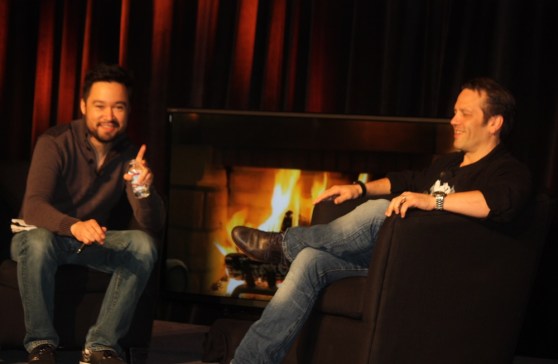Fans disappointed with Microsoft’s recent Xbox moves should like its latest — making someone with years of game experience as the platform’s new boss.
Microsoft announced this morning that Phil Spencer, the head of the company’s game studios, will take over as the new overall chief of the Xbox business. As such, he’ll have the task of making the Xbox One more competitive against Sony’s PlayStation 4 as well as helping to spread gaming to more and more people around the globe.
Microsoft’s decision will likely be popular among gamers, as Spencer is intimately familiar with game development. He will take on that role at a time when Microsoft has been losing ground to Sony in the core game business. Sony has been racing ahead of Microsoft in sales of next-generation consoles, as the PS4 costs $400, or $100 less than Microsoft’s machine. Microsoft chose that pricing strategy because its box has a built-in Kinect motion sensor and voice commands for TV viewing. But Sony recently said that its PS4 had sold more than 7 million units since its November launch.
Spencer replaces Marc Whitten, the former chief product officer for Xbox, as the new head of Xbox. Whitten left to become the chief technology officer of audio tech firm Sonos.
He was named general manager of Microsoft Studios in 2008 and promoted to corporate vice president in 2009. He had previously run game development for Microsoft in Europe. He has been responsible for the full breadth of Microsoft’s internally produced games, from Halo to Kinect Sports.
“Our community is at the heart of what we do at Xbox. Whether it is meeting thousands of fans at the launch of Xbox One, talking at industry events or hearing from gamers on Twitter and Xbox Live, I am actively listening and I am motivated to do what’s right for fans who’ve invested their time, hearts, and money in the products we build,” Spencer said in a blog post. “You have been the most important part of the success Xbox has had to-date and you are a critical voice as we continue the journey. Let’s keep the conversation going.”
Spencer will lead the Xbox, Xbox Live, and creative teams at Xbox Music, Xbox Video, and Microsoft Studios. Spencer will report to Microsoft executive Terry Myerson, according to a post by Microsoft chief executive Satya Nadella. That means that Microsoft will keep “gaming close to the group developing operating systems across devices,” Nadella said. Stephen Elop, former head of Nokia, is joining Microsoft and executive vice president of the Microsoft Devices Group.
“Stephen will partner closely with Phil and Terry on Xbox and will bring together many of the top leaders from his existing Nokia Devices and Services organization as well as the current leaders of the Devices and Studios team,” Nadella said.
Microsoft has been criticized in the past year for making some decisions that were not in the interests of fans. At first, it announced that it would prohibit used game sales on the Xbox One and require an always-on connection. It also had vague privacy policies. After an outcry, Microsoft backed off on those policies.
George Peckham will continue to lead third-party partnerships. Yusuf Mehdi will stay in charge of Xbox business strategy and marketing. And Mike Angiulo will be in charge of Xbox hardware.
Microsoft has more than 80 million Xbox 360 and Xbox One owners, and it has 48 million Xbox Live members. In a recent talk at the Game Developers Conference 2014, Spencer said he was happy with how the November launch of the Xbox One turned out.
“In hindsight, as we rolled it out, we could have been more clear and concise about what was the soul of the product,” he said. “It was a great learning experience for me. I’m not one to look back and thinking about changing things.”
Microsoft’s approach to indies was also a source of embarrassment. At the Electronic Entertainment Expo trade show in June, Sony highlighted indie developers like the celebrated Jonathan Blow (Braid), who is creating the open-world puzzler The Witness, onstage and talked about a lot of games for the PS4 at the show. Sony recently touted that it has more than 1,000 indie-game makers self-publishing on the PlayStation platform. Microsoft showed almost nothing related to indies in its own press conference. That created the impression that Microsoft didn’t care about those games and their developers.
But Spencer said the issue was more with timing. Microsoft announced its ID@Xbox indie game development program in August. That program is now in full steam and yielding results, Spencer said. Microsoft showed 26 working Xbox One indie games at the GDC this week, and it announced it had 250 game developers signed up to publish their indie titles on the Xbox One. The games that are showing up are professionally done and fairly hefty, he said.
“Gamers will get to choose the games they want to play, and developers will have a more direct relationship with the gamers,” Spencer said.
VentureBeat's mission is to be a digital town square for technical decision-makers to gain knowledge about transformative enterprise technology and transact. Learn More





![Reblog this post [with Zemanta]](http://img.zemanta.com/reblog_e.png?x-id=885b7c0e-4aef-4e33-8528-8f9a6ce13dce)
